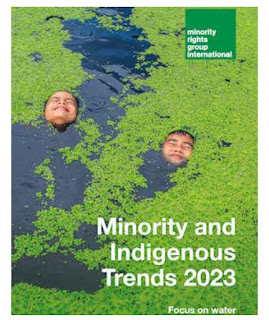Story by Hagar Sey

Water they say is life, but lack of potable water has serious health implications on a nation as well as the individual. According to the United Nations (UN) Sustainable Development Goals 6, the country is expected to achieve universal goal, equitable access to safe and affordable drinking water by 2030. The Community Water and Sanitation Agency (CWSA), which is in charge of the provision of water and sanitation services in rural areas puts access to water at 63 percent. This indicate that majority of people leaving in the rural area have access to improve source of drinking water. The situation is different in some communities in the middle belt area in the Eastern region. Access to save drinking water, sustainability, and equity has become a major challenge in Moano, Obonkorkor, Nsutapon Sukwanya, Dawa Kpesisi, Akohia, Obawale, Abretima, Akusu, Trawa, Abotia, Brepaw Kpeti, Krobo girls SHS, Asesewa SHS, and Asesewa government hospital. An opinion leader of Akusu Saisi community, joseph Ogbordjor, said residents have to walk for half a kilometer to access the Volta Lake as their source of drinking water. He said because the water is not a treated water, they sometime see worms in the water. A situation according Mr. Ogbordjor they have no option but use it for drinking and their domestic chores. He said disease like river blindness and bilharzia was very common in the community. He said the SWASH 3 Project has brought a lot of benefit to the community. Another residents at Akusu Saisi, Vida Teitey said even though they know the lake is contaminated the community members do not have any choice since it the any source of water. She said sickness like river blindness, bilharzia are common disease in the community. The situation was affecting the children’s academic performs in class. They sometime loose interest in coming to school after going to the lake side. Madam Vida said since the bore hole was constructed do not walk far to access water. Even though, there is a water supply from Community Water and Sanitation Agency, it is not enough to meet the demands of the residents and institutions for a day. Institutions like Krobo girls SHS, Asesewa SHS, and Asesewa government hospital have to rely on tankers and Sacket water when the CWSA fail to supply them water for a longer period.
Byte(headmistress krobo girls)Betty Aduhene Chinbuah said the school rely on a buy water from the Ghana water company limited for supply. She said any time the GWCL supply takes long the school has to reply on sachet water to meet the water demands. She said the old students bought polo tanks for the school for storage but there is no frequent supply of water.
Through the Water Sanitation and Hygiene project (SWASH 3) executed by Growth Aid with support from Later Days Saint Charities, Moano, Obonkorkor, Nsutapon Sukwanya, Dawa Kpesisi, Akohia, Obawale, Abretima, Akusu, Trawa, Abotia, Brepaw Kpeti, Krobo girls SHS, Asesewa SHS, and Asesewa government hospital, have been relief from the stress of walking for hours to access water.
The Swash project does not only provide water facilities to institutions and communities but also does monitoring and water quality test with the respective assemblies for a period of three years. Some of the students and residents who benefited from the SWASH 3 said they have to walk for more than two hours to search for water but SWASH 3 project has brought the water to their door steps.
The school prefect of Asesewa SHS , Jessica Akuffo a form three student, said the students walk for many hours in search of water from the neighboring town. She said sometimes they come to campus without water or half a bucket. she said most of the have gotten pregnant because of water. She said the support from growth aid and later days saint charities will help address some of these challenges confronting the school.
Sustainable Water, Sanitation and Hygiene (SWAH 3) Project is a sustainable wash project executed by Growth Aid with support by the Later Days Saint Charities. The projected is expected to improved and sustainable water, sanitation and hygiene serves for more that eighteen thousand people living in the rural and deprived communities. The program is to help prevent and manage water related diseases that can easily be prevented in the communities and institutions. The project is been implemented in 15 communities within the Lower Manya and Yilo Krobo Municipal Assemblies.
Issues of water and sanitation is a shared responsibility we all have a role to play to help the country achieve it SDG 6 target by 2030.











